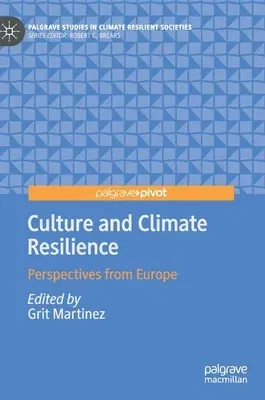Culture and Climate Resilience: Perspectives from Europe (2021)Hardcover - 2021, 31 December 2020

Qty
1
Turbo
Ships in 2 - 3 days
In Stock
Free Delivery
Cash on Delivery
15 Days
Free Returns
Secure Checkout

Part of Series
Palgrave Studies in Climate Resilient Societies
Print Length
136 pages
Language
English
Publisher
Palgrave MacMillan
Date Published
31 Dec 2020
ISBN-10
303058402X
ISBN-13
9783030584023
Description
Product Details
Book Edition:
2021
Book Format:
Hardcover
Country of Origin:
NL
Date Published:
31 December 2020
Dimensions:
21.01 x
14.81 x
1.12 cm
ISBN-10:
303058402X
ISBN-13:
9783030584023
Language:
English
Location:
Cham
Pages:
136
Publisher:
Weight:
335.66 gm